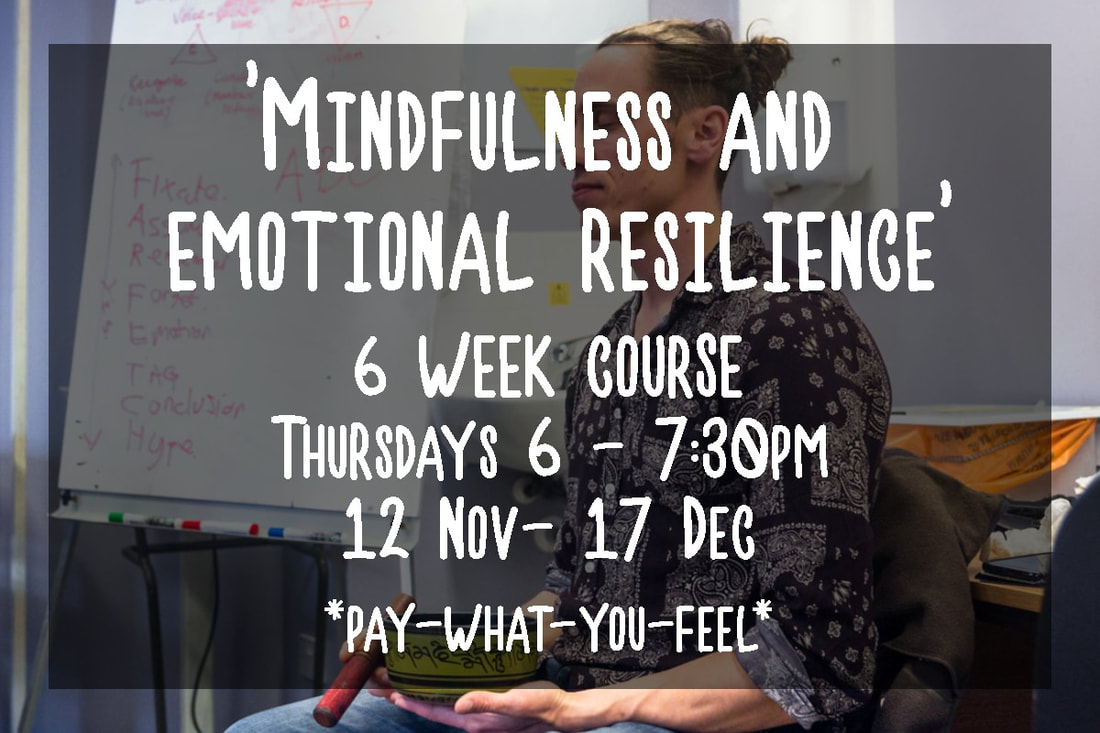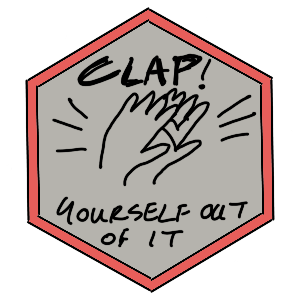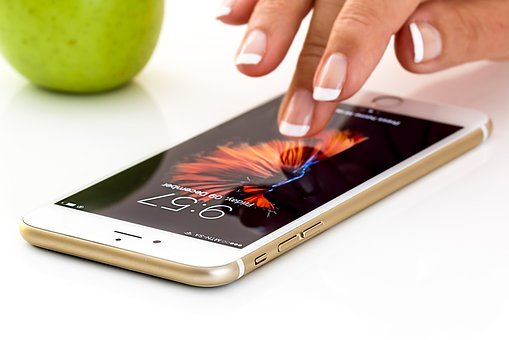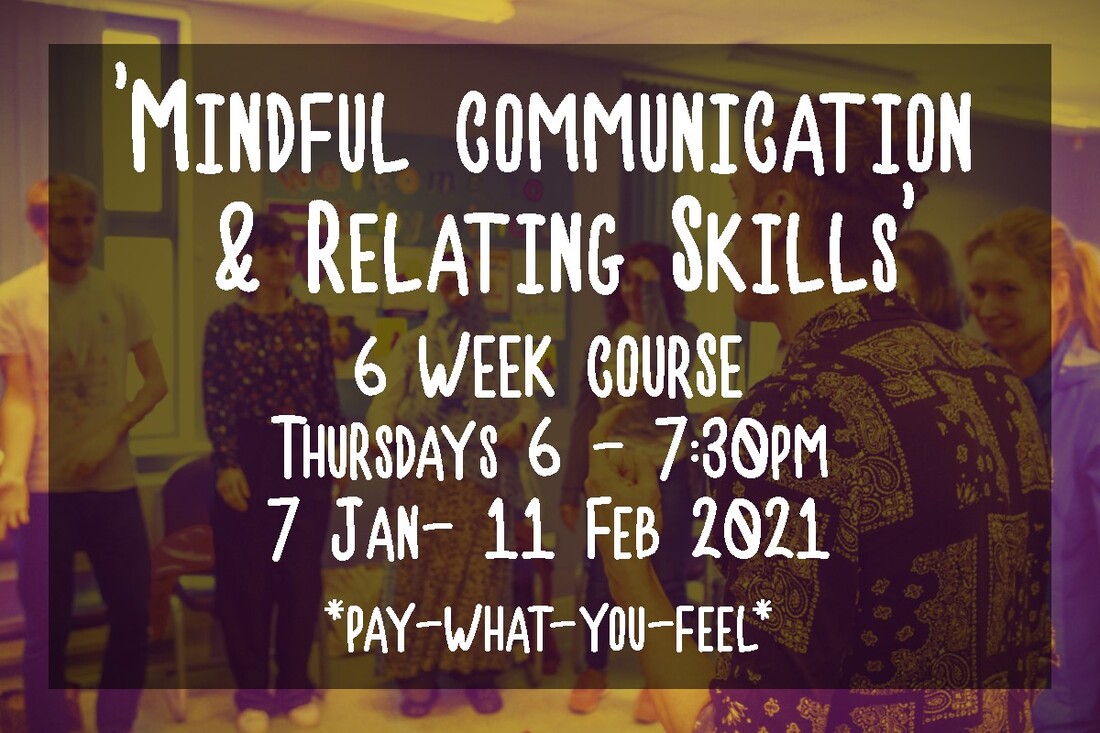A behavioral brain trick called “dopamine fasting” has been around for a while now - the idea of restricting most of your pleasurable daily activities — from social media, to watching videos, gaming, or even eating — you can “reset” your brain. The idea also plays into people’s simplistic ideas about how the brain works.
But does it work? TLDR: No, not in my opinion. It is still focused on using willpower to overcome primal drives. Instead let’s add inspiration and tiny habits into the mix and the result - take a MAD habit holiday instead! This blog is inspired by session 2 of my course: Mindfulness and Emotional Resilience. Here is a summary of some of that session:
But does it work? TLDR: No, not in my opinion. It is still focused on using willpower to overcome primal drives. Instead let’s add inspiration and tiny habits into the mix and the result - take a MAD habit holiday instead! This blog is inspired by session 2 of my course: Mindfulness and Emotional Resilience. Here is a summary of some of that session:
Why Dopamine Detox / Fasting doesn't work
Dopamine is the neurotransmitter that signals anticipation of pleasure. Ir helps you be motivated to get things done and to move. Too much of it and you over-excite the neurons with the resulting pleasure chemicals (EOPs) and then you are ;’over-stimulated’ which is a state where you struggle to focus on the present moment and enjoy things. You therefore feel the urge to do more, consume more etc. It was once thought to be behind addiction, which is now no longer our understanding. However we do know the balance of serotonin and dopamine plays a part and I wrote about that here. But will starving ourselves of dopamine hits (short-term pleasures) help us to balance them? Well, no - because addiction is more about ‘meaning’.
Addiction
Addiction has been proven by experiments with rats to be more complex, and more about cultural and physical environment than motivation chemicals.. Because we are creatures of habit and the science of habit is more about psychology than biology. I used to think addiction is all biological, thanks to ideas like this first video, but reading books by Harrari and Brandt helped me see it is much more about the way we think - the meaning in our lives.
Dopamine is the neurotransmitter that signals anticipation of pleasure. Ir helps you be motivated to get things done and to move. Too much of it and you over-excite the neurons with the resulting pleasure chemicals (EOPs) and then you are ;’over-stimulated’ which is a state where you struggle to focus on the present moment and enjoy things. You therefore feel the urge to do more, consume more etc. It was once thought to be behind addiction, which is now no longer our understanding. However we do know the balance of serotonin and dopamine plays a part and I wrote about that here. But will starving ourselves of dopamine hits (short-term pleasures) help us to balance them? Well, no - because addiction is more about ‘meaning’.
Addiction
Addiction has been proven by experiments with rats to be more complex, and more about cultural and physical environment than motivation chemicals.. Because we are creatures of habit and the science of habit is more about psychology than biology. I used to think addiction is all biological, thanks to ideas like this first video, but reading books by Harrari and Brandt helped me see it is much more about the way we think - the meaning in our lives.
| | |
How you think about it matters
OK, but most of our normal habits are not toxic addictions, they are simply a little ‘reactive’ and therefore overbalanced. Problem is we often beat ourselves up about them, as if they are terrible. This makes the cravings for relief stronger! If you finally do decide to stop and use the ‘fasting’ or ‘detox’ methods then you will probably add what I call ‘deprivation stress to the underlying feelings of craving. you are attempting to use willpower and slave driving rather than going with the flow of enjoyment. Positive, empowered thinking will not add stress, it will add enjoyment! I have two suggestions:
The strongest is the one you feed
A neat visual perspective on that is I imagine dopamine as a wee doggie inside me. It is craving and barking and yapping. If I feed it, then it gets stronger. I choose to see the yapping as a sign that it wants feeding. When I say no, it gets weaker and my pussycat of power gets stronger instead! So craving is good! This was inspired by the book ‘The Easy Way to Quit Sugar’.
MAD habits - the core reason we form reactive habits
The core reason, in my opinion, that we have reactive habits is because we have evolved three basic directions to threat detection (stress): Fight, Flight, Freeze. Millions of years of evolution are not overcome by a weekend off your smartphone. The next time you feel lonely or rejected you’ll be back on social media because the powerful autonomic nervous system has evolved to do that. The modern world is full of temptations that play on the modern versions of FFF:
OK, but most of our normal habits are not toxic addictions, they are simply a little ‘reactive’ and therefore overbalanced. Problem is we often beat ourselves up about them, as if they are terrible. This makes the cravings for relief stronger! If you finally do decide to stop and use the ‘fasting’ or ‘detox’ methods then you will probably add what I call ‘deprivation stress to the underlying feelings of craving. you are attempting to use willpower and slave driving rather than going with the flow of enjoyment. Positive, empowered thinking will not add stress, it will add enjoyment! I have two suggestions:
- First, see the time off as liberating, luxurious and a relief - like a holiday!
- Second, recognise this is all a process of learning and finding balance. Nothing is wrong and pain is a natural part of the learning process. In fact pain is a good sign - a sign of growth.
- Third, if you do slip up, do it consciously. Experience it, get real, and talk about it. This way you get to expose yourself to the truth of the habit, and learn faster, to naturally let it go.
The strongest is the one you feed
A neat visual perspective on that is I imagine dopamine as a wee doggie inside me. It is craving and barking and yapping. If I feed it, then it gets stronger. I choose to see the yapping as a sign that it wants feeding. When I say no, it gets weaker and my pussycat of power gets stronger instead! So craving is good! This was inspired by the book ‘The Easy Way to Quit Sugar’.
MAD habits - the core reason we form reactive habits
The core reason, in my opinion, that we have reactive habits is because we have evolved three basic directions to threat detection (stress): Fight, Flight, Freeze. Millions of years of evolution are not overcome by a weekend off your smartphone. The next time you feel lonely or rejected you’ll be back on social media because the powerful autonomic nervous system has evolved to do that. The modern world is full of temptations that play on the modern versions of FFF:
|
Accept your reactions and notice them in a SANE way
Instead of fighting our reactions we are better served to notice and accept them. That doesn’t mean just give in and do nothing, it means use SANE strategies to accomplish this:
MAD habit holiday
One way you can do this is to choose a short period of time to take off one habit and replace it with a pleasurable, nourishing one. Treat it as a holiday, not a discipline camp. That way you won’t add more stress to the whole thing. See the little cravings inside as a yapping dopamine dog, which you can soothe by acknowledging and thanking. This is one of my tools...
Instead of fighting our reactions we are better served to notice and accept them. That doesn’t mean just give in and do nothing, it means use SANE strategies to accomplish this:
- Slow down: Pause and notice what is happening. This is the first part of what I teach (meditation)
- Acknowledge: Say out loud what you are feeling and thinking, and the facts, if possible.
- Neutralize negativity: If it’s not possible then it’s time to use tools to transform negative thinking. This is the second part of what I teach (positive psychology).
- Experiment: Take tiny actions to play with new options . Tiny habits are, in my view, more successful.
MAD habit holiday
One way you can do this is to choose a short period of time to take off one habit and replace it with a pleasurable, nourishing one. Treat it as a holiday, not a discipline camp. That way you won’t add more stress to the whole thing. See the little cravings inside as a yapping dopamine dog, which you can soothe by acknowledging and thanking. This is one of my tools...
TRAPs
During this time it is quite likely you’ll trip up and fall into the same old traps. No worries, remember it’s all part of the learning process. Every FAIL is a Fresh Attempt In Learning. The real practice is to forgive by laughing and learning! Clever little adorable Dopamine Doggie and Mindless Monkey! The learning aspect comes primarily for preparation. Here is a quick way to prepare to remember about the TRAPs:
During this time it is quite likely you’ll trip up and fall into the same old traps. No worries, remember it’s all part of the learning process. Every FAIL is a Fresh Attempt In Learning. The real practice is to forgive by laughing and learning! Clever little adorable Dopamine Doggie and Mindless Monkey! The learning aspect comes primarily for preparation. Here is a quick way to prepare to remember about the TRAPs:
- Temptations: What temptations are strong?
- How could you remove strong temptations? Eg. I could turn notifications off & delete files
- How could you place temptations for a new, nourishing habit? Eg. I could leave a bowl of nuts on my table and a book next to that.
- How could you remove strong temptations? Eg. I could turn notifications off & delete files
- Reactions: What makes it easy to react?
- How could you make it harder to react to reactive habits? Eg. I could commit to one hour off my phone and use a phone blocking app
- How could you make it easier to choose the new habit? Eg. I could commit to reading one page a day of a book I like
- How could you make it harder to react to reactive habits? Eg. I could commit to one hour off my phone and use a phone blocking app
- Affect: The real impacts of the habit on the 6 key areas of your life. Highlight and major positives or negatives.
- Career/purpose,
- Finances,
- Social,
- Emotions,
- Thoughts/Mind
- Physical health
- Career/purpose,
- Pleasure: What is pleasurable, really? Can I remove/add pleasure to help me in any way (consider role models / anti role models)?
My old compulsion and my new chosen habit
I’ve already used these methods to eliminate compulsions towards news, sugar and facebook (over the past two years) and now I’m working on Pornography (and similar visual stimulus of women) which I’m replacing with reading and guitar playing. As an example here are my detailed answers to questions 3 and 4
Affects: (major positives in red, negatives in green)
Pornography:
Pleasure: What is pleasurable, really?
I know, from my reading of ‘The Easy Way to Quit Sugar’ that I can affect pleasure by recognising
The ugliness of porn: Porn is pleasurable for about 10 minutes, whilst I ogle and orgasm. It is ugly for longer - Fake people, in makeup, covering up traumas, infiltrating my mind with craving and being a slave to people who make the movies (who I imagine as chubby, smoking, greedy people).
The beauty of reading and guitar: Sometimes I think of reading as boring and guitar as hard work, but them I think of inspiring books like ‘Surely You're Joking, Mr. Feynman’ and ‘The Bosy Keeps Score’ and remember the feeling of inspiration. I also remember the times I learned guitar in my 20’s and loved it, and playing for people in festivals. Inspiring people who read I think of include The Beatles, JK Rowling, Carl Sagan, Nick Drake…
One more secret weapon: Tripping the TRAPs with a Clap!
A friend of mine introduced one final weapon in fighting the MAD habits. A pattern interrupt you know well: Clapping your hands! Here’s how it works
Holiday time!
With that in mind and taking as many good feelings into this time off. I’m giving myself 2 months off. Ahh the luxury. I suggest always thinking in this ‘liberating’ way, so you don’t add ‘deprivation stress’ to the feelings of craving already in your body. Remember they are just a little yapping dog of dopamine.
I like to tell everyone I’m on holiday and celebrate it daily. I can do it so much better if I holiday with another person. We can call this an ‘accountability buddy’. We encourage and celebrate daily. If we get an urge? Tell them. Call each other ‘lucky swine!’ for the fact they have painful cravings. Ha! That’s because the pain is a good sign - a sign of growth and opportunities for more growth if framed correctly.
So go forth, holiday well and after your holiday you can choose, naturally, without any ‘shoulds’ or willpower, your balance of habits.
Want to experience this course or 1:1 coaching - contact me now.
I’ve already used these methods to eliminate compulsions towards news, sugar and facebook (over the past two years) and now I’m working on Pornography (and similar visual stimulus of women) which I’m replacing with reading and guitar playing. As an example here are my detailed answers to questions 3 and 4
Affects: (major positives in red, negatives in green)
Pornography:
- Career / Purpose: These two are the same for me, but you may wish to split them. Porn sometimes interferes with my passion project - my work. If I get a difficult challenge I rarely, but sometimes I turn to porn. No benefits.
- Financially: I don’t spend money on porn, but do spend time and energy. To quantify that I’d say it costs me 2 hrs of work a week as a conservative estimate, which is £100/week and therefore around £5000 per year (potential loss). No benefits.
- Socially: There are times I stay in and do this instead of reaching out to friends. Therefore it has a high detrimental effect. I remember a couple of times friends have been low/ lonely and I’m wrapped up in this energy sucking activity. When I remember that I feel sad about my priorities. Benefits: It has increased the amount of fantasies I can do with partners, which is a fun thing.
- Emotional: I know that porn makes me low sometimes. I see women and compare them with the porn and feel disappointed. This is a big downside. Benefit: Sometimes it's nice to shift my mood by using the easy reaction of porn and masterbation. Long term though the mood enhancement wears off and is often worse the next day as my energy levels are low.
- Thoughts/Mind: This is a huge bad point - Porn litters my mind with crap and stops me seeing real beauty. Minor benefits of extra fantasies in my mind, but this does not offset the huge negitive.
- Physical health: Porn saps my energy. I feel weaker and it takes time from fun movements, like dance, boxing or climbing. No benefits.
- Career / Purpose: Reading has big benefits. I’ve already built up a big library of resources. I also use guitar to write children's songs with mindfulness themes!
- Financially: Books provide so much inspiration, which makes me work harder. It’s impossible to quantify this, but I could definitely say that it drives my financial progress.
- Socially: Guitar is the big winner here. I love playing for others and it adds so much to a party. Reading also gives me more to talk about.
- Emotional: Guitar can shift my mood massively, long term. Books less so, but if I'm in a good mood books can sustain that.
- Thoughts/Mind: This is a huge good point. Both books and guitar can inspire so much positive and creative thinking.
- Physical health: Neutral, but sometimes books make me a bit lazy
Pleasure: What is pleasurable, really?
I know, from my reading of ‘The Easy Way to Quit Sugar’ that I can affect pleasure by recognising
The ugliness of porn: Porn is pleasurable for about 10 minutes, whilst I ogle and orgasm. It is ugly for longer - Fake people, in makeup, covering up traumas, infiltrating my mind with craving and being a slave to people who make the movies (who I imagine as chubby, smoking, greedy people).
The beauty of reading and guitar: Sometimes I think of reading as boring and guitar as hard work, but them I think of inspiring books like ‘Surely You're Joking, Mr. Feynman’ and ‘The Bosy Keeps Score’ and remember the feeling of inspiration. I also remember the times I learned guitar in my 20’s and loved it, and playing for people in festivals. Inspiring people who read I think of include The Beatles, JK Rowling, Carl Sagan, Nick Drake…
One more secret weapon: Tripping the TRAPs with a Clap!
A friend of mine introduced one final weapon in fighting the MAD habits. A pattern interrupt you know well: Clapping your hands! Here’s how it works
- First imagine something that feels great, like doing incredibly well in a job interview and getting offered the hob, on the spot.
- CLAP! Associate empowerment feelings with the clap.
- Repeat this 3-5 times every week.
- Use the clap whenever you notice yourself doing the old habit. This will empower you! Then say “I’m better than…(old habit)
- Walk away!
Holiday time!
With that in mind and taking as many good feelings into this time off. I’m giving myself 2 months off. Ahh the luxury. I suggest always thinking in this ‘liberating’ way, so you don’t add ‘deprivation stress’ to the feelings of craving already in your body. Remember they are just a little yapping dog of dopamine.
I like to tell everyone I’m on holiday and celebrate it daily. I can do it so much better if I holiday with another person. We can call this an ‘accountability buddy’. We encourage and celebrate daily. If we get an urge? Tell them. Call each other ‘lucky swine!’ for the fact they have painful cravings. Ha! That’s because the pain is a good sign - a sign of growth and opportunities for more growth if framed correctly.
So go forth, holiday well and after your holiday you can choose, naturally, without any ‘shoulds’ or willpower, your balance of habits.
Want to experience this course or 1:1 coaching - contact me now.








